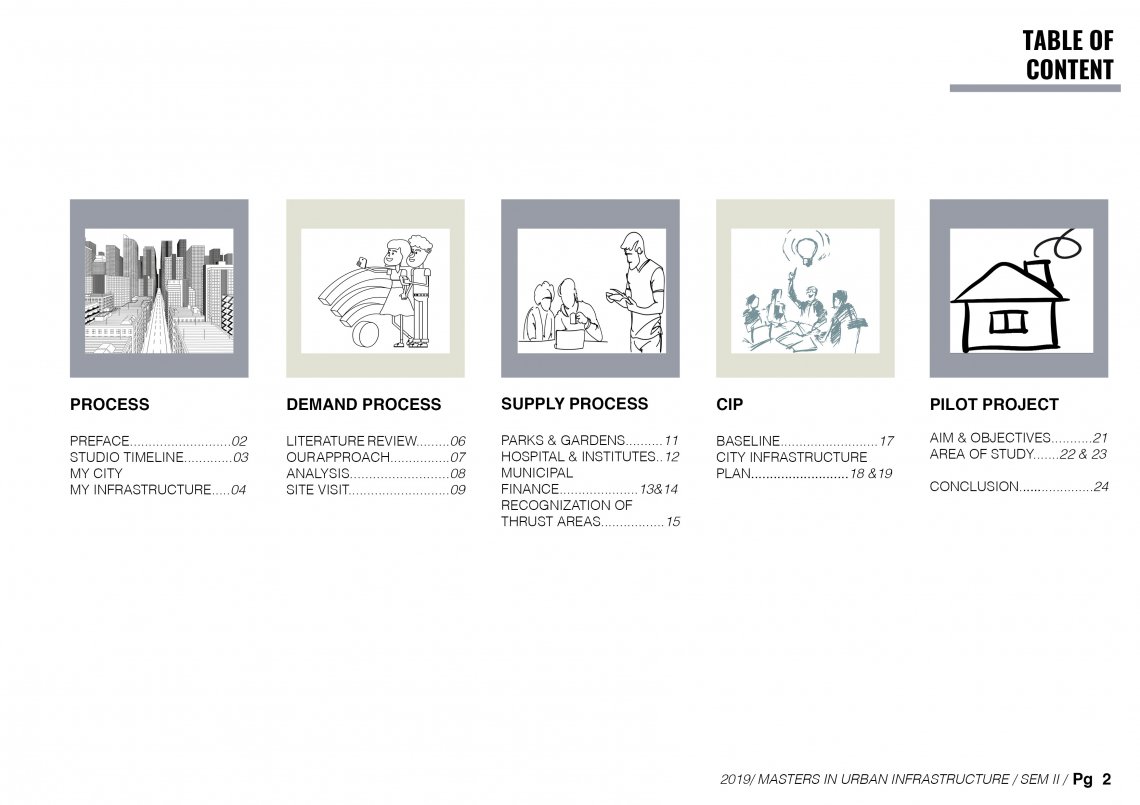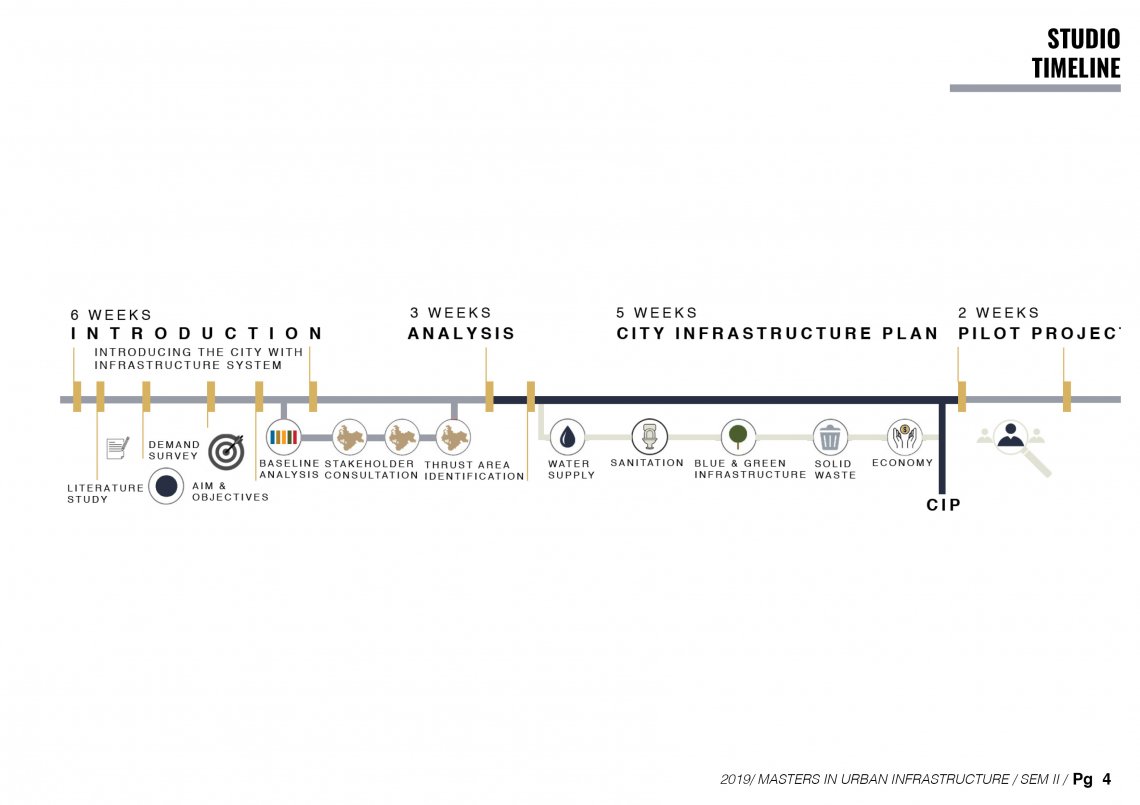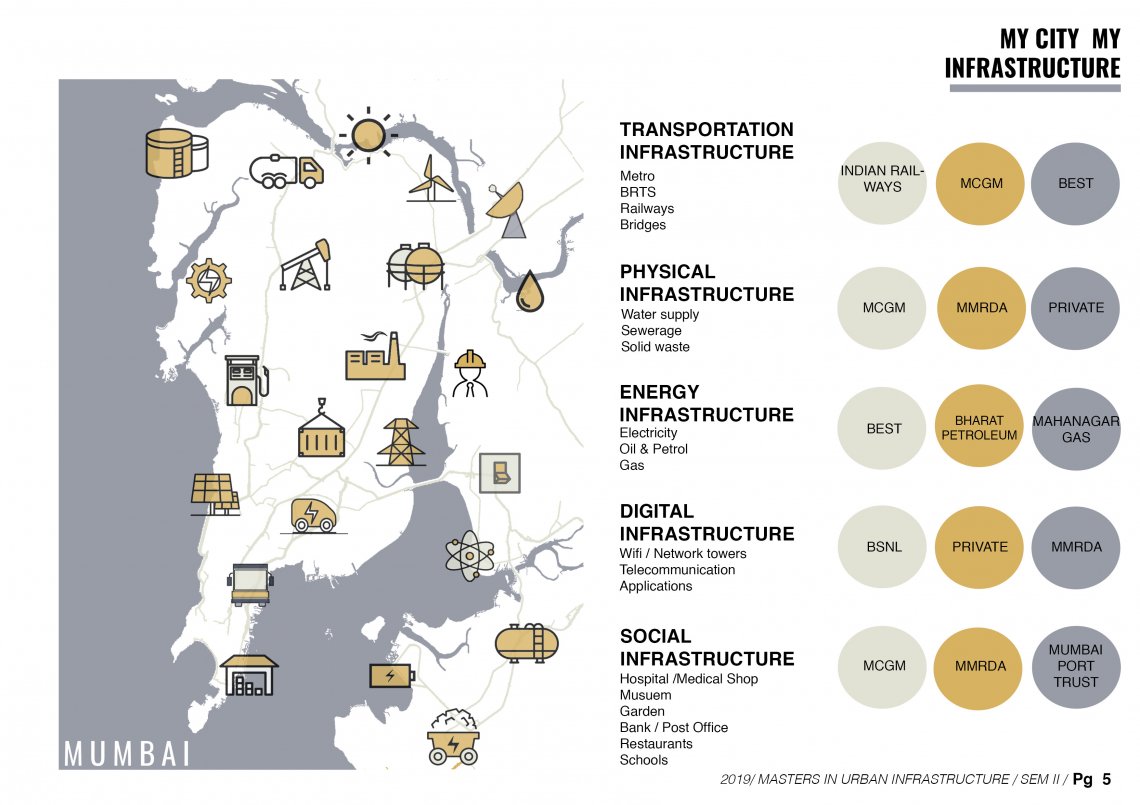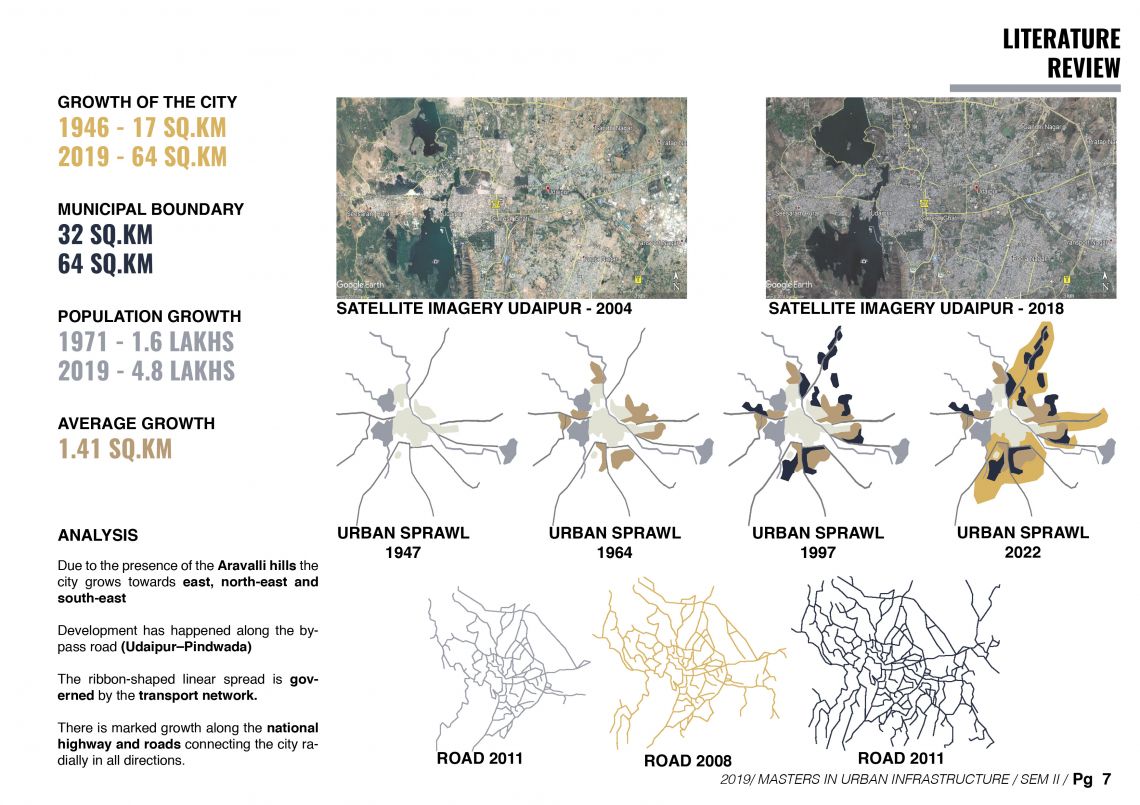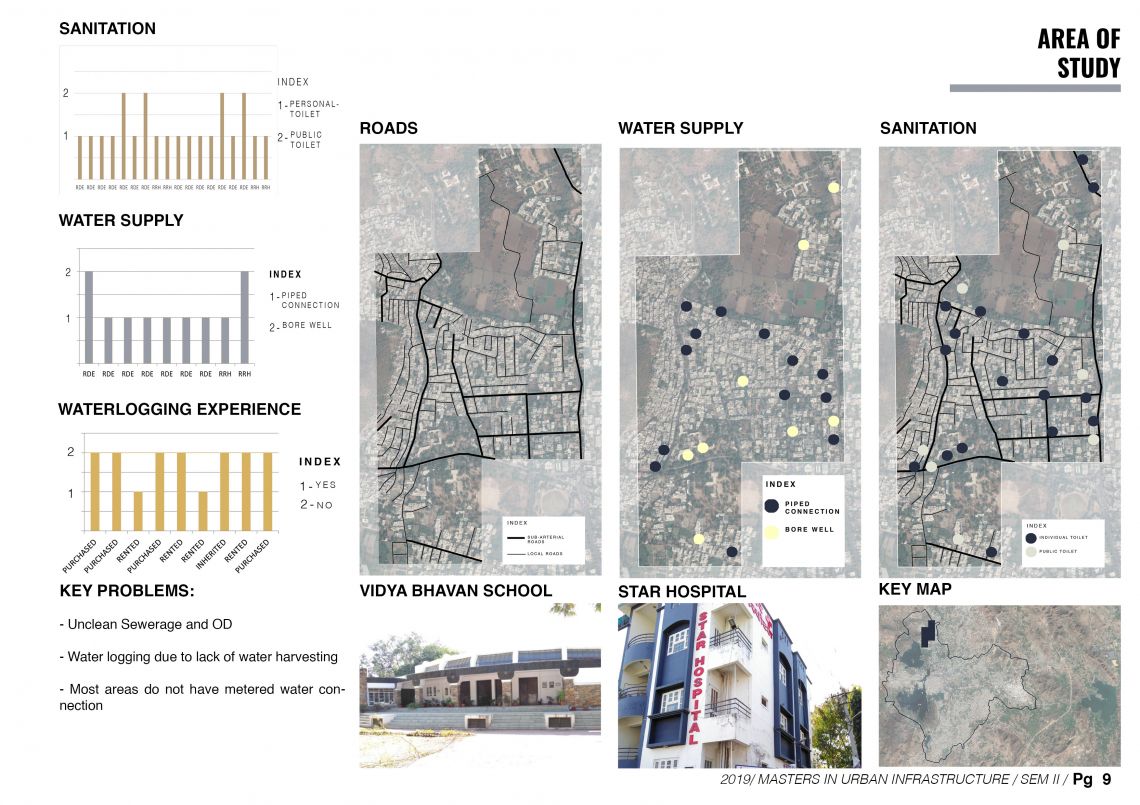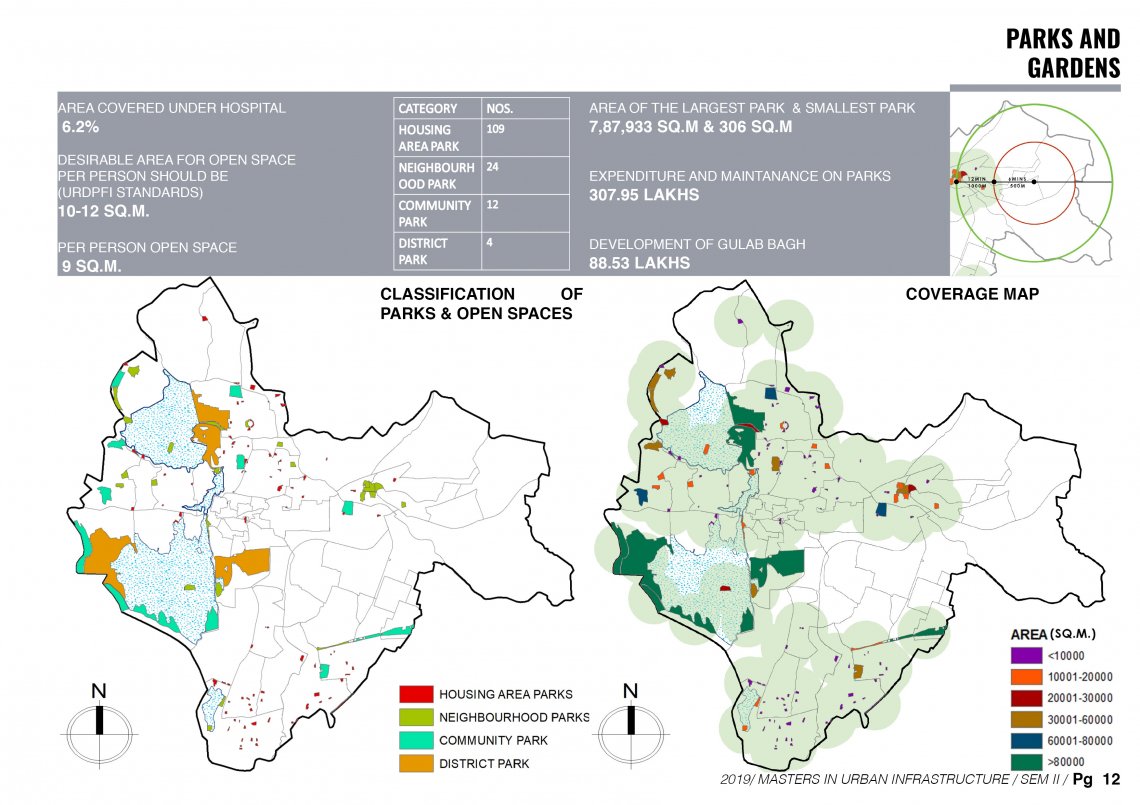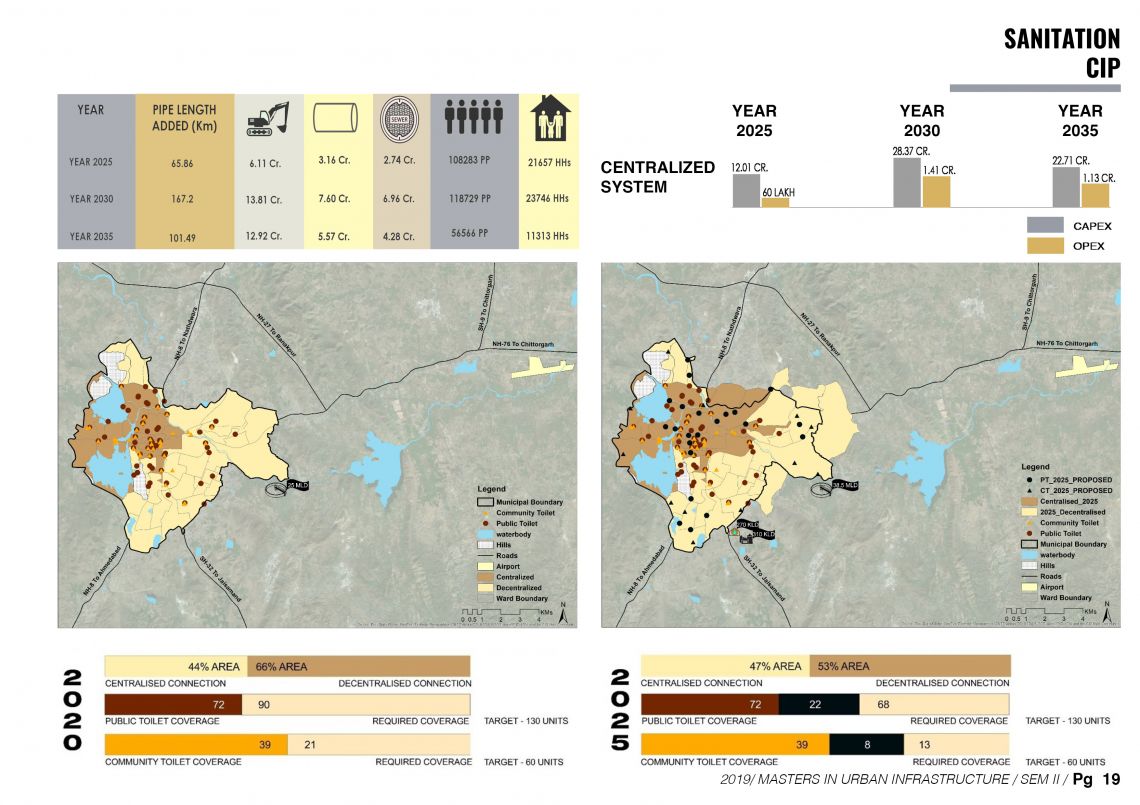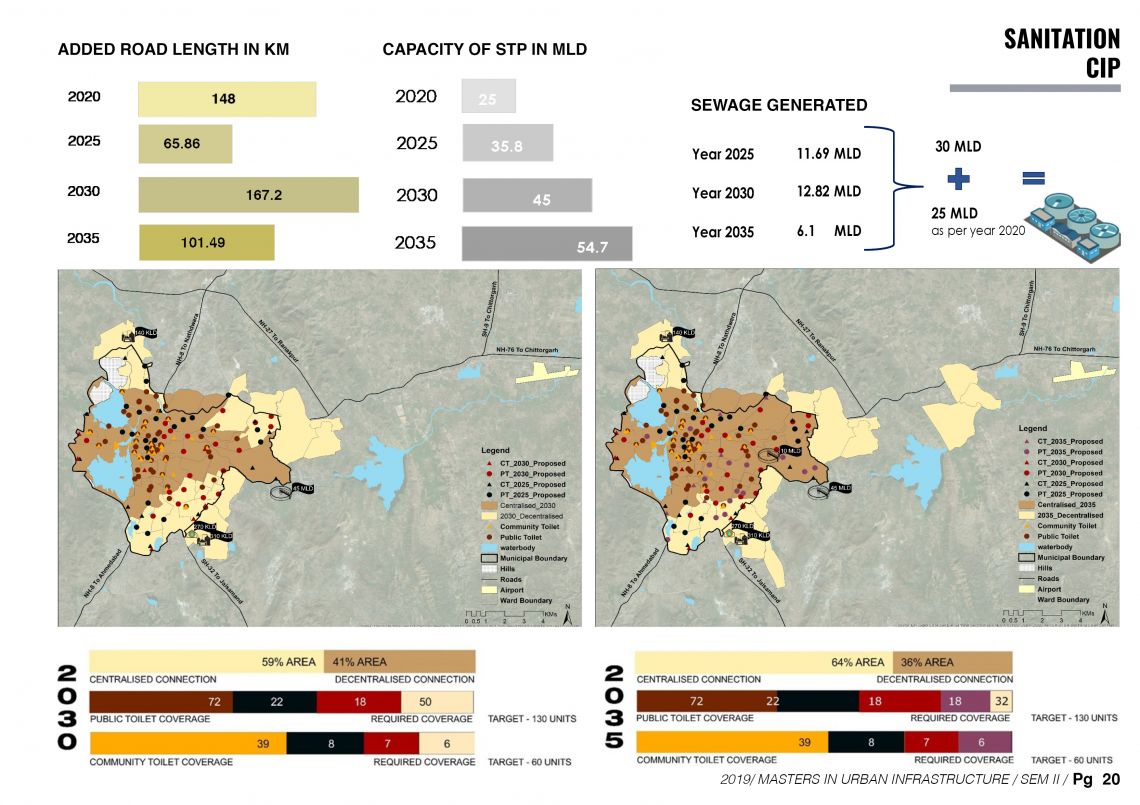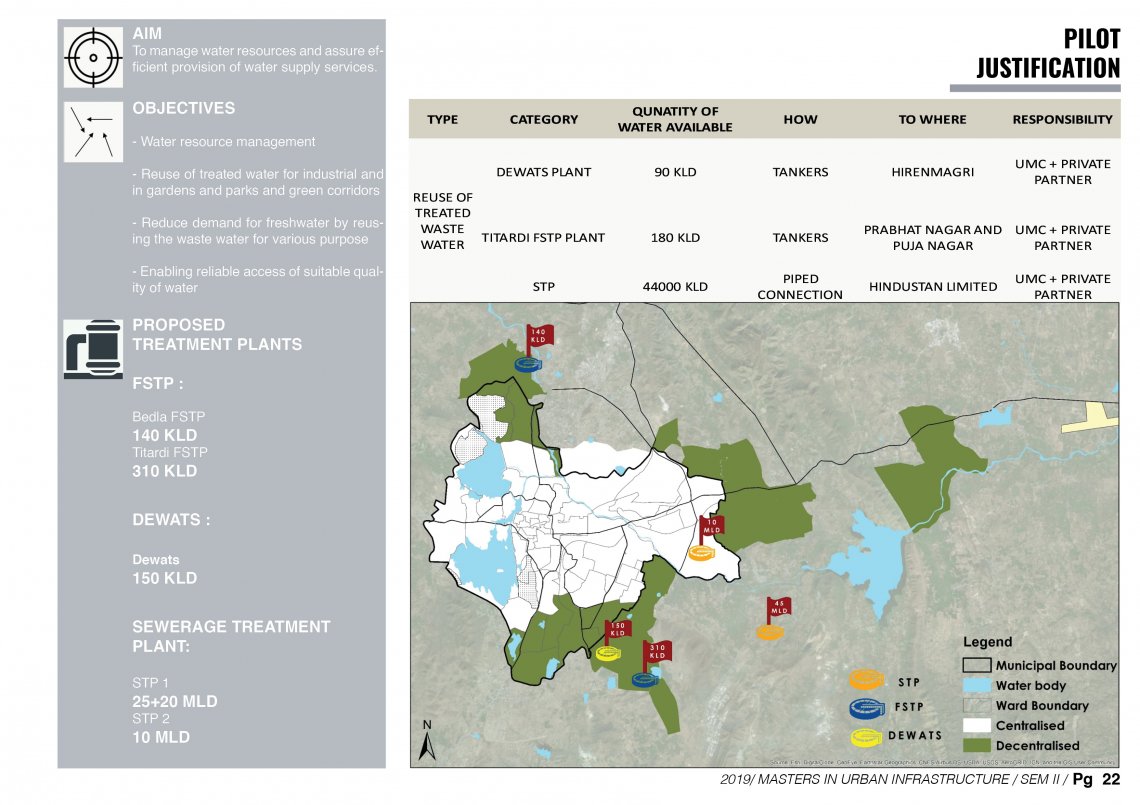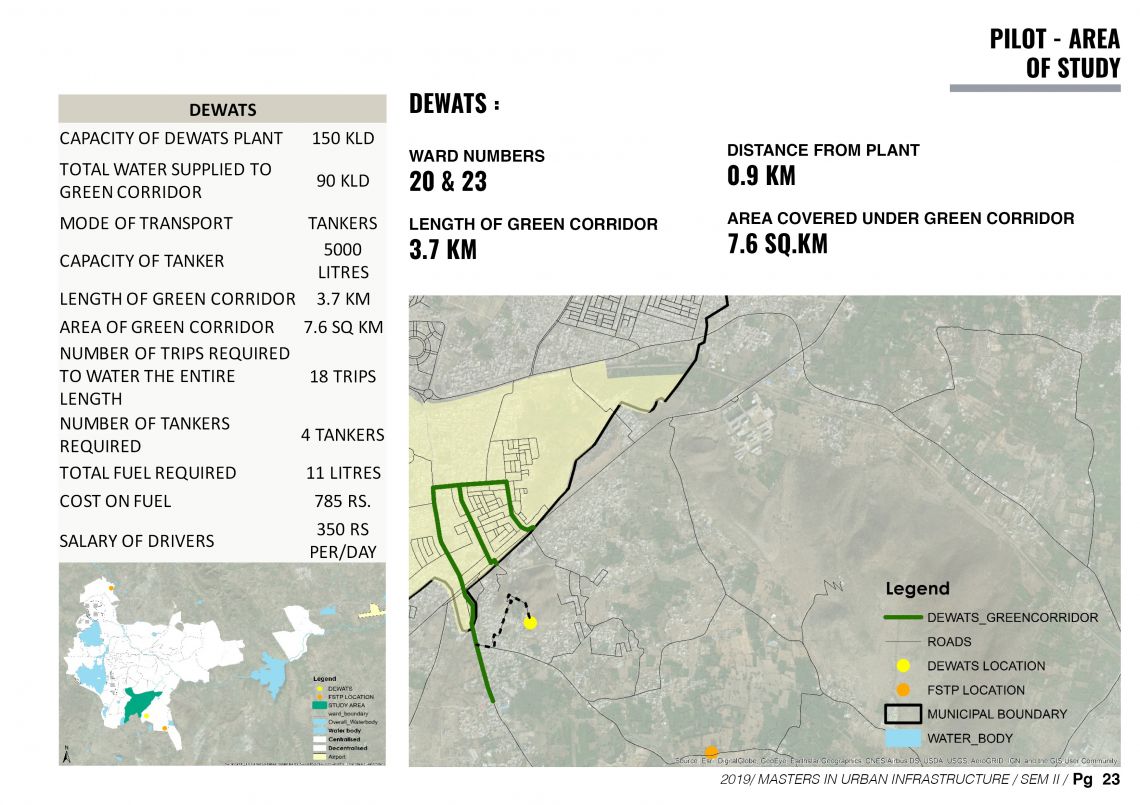Your browser is out-of-date!
For a richer surfing experience on our website, please update your browser. Update my browser now!
For a richer surfing experience on our website, please update your browser. Update my browser now!
Masters In Urban infrastructure Studio is conducted and guided by Mr Saswat Bandhopadhya and Mrs Neeru Bansal. Our studio is a collaboration of 19 professional coming from up north to down south with a multidisciplinary background. Our aim was to develop a detailed understanding of how city level infrastructure plans are prepared and integrated with the city’s urban planning framework A city Infrastructure plan is a combination of the municipal and the non- municipal services. Which in general work in silos. It is a comprehensive plan with approach altogether on blue&green infrastructure along with physical infrastructure like sanitation, solid waste, water supply. This is unique as in general these sectors also are developed in a silo in a particular city. The City Infrastructure Plan generally integrates land use along with various infrastructure sectors. In the 16 weeks Infrastructure studio we started recognizing infrastructure as a catalyst, proceeding to the aim of the studio which was to develop a detailed understanding of how city level infrastructure plans are prepared and integrated with citywide development proposals and visions. In order to achieve the same, we followed a methodology of collecting the existing demand of the city by multiple filed visits and surveying 590 HH. After which we recognized the institutional framework and proceeded in analyzing the gap of demand and supply. A baseline detailed study was prepared which helped us to recognize the thrust areas of the city which need immediate attention. In the sectors of water supply, sanitation, solid waste and blue and green infrastructure. In the proposed CIP I worked on identification and proposal of sustainable sanitation systems under specific local conditions aiming towards ODF and ODF++ Status. 23% of the households are covered under sewage network and the majority of households are connected to either septic tanks or soak pits. To bridge the existing gaps for the demand in sanitation a city-wide integrated sanitation plan will be proposed. Area-based decentralized sanitation management plan such as DEWATS and FSTP was proposed in the fringes. The study familiarized me to environmental, social, political, economic, financial dimensions of urban infrastructure development and ethical dimensions of working as an urban professional.
